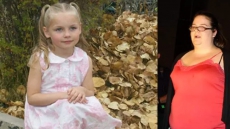VANCOUVER — A British Columbia boy who was seized twice by the Children's Ministry due to his mysterious broken bones has been found to have a rare gene abnormality linked to a condition that blocks all feelings of pain.
The five-year-old boy was returned to his parents last fall after doctors determined his unexplained fractures were not caused by abuse. Now, geneticists have found a variant in a gene linked to congenital insensitivity to pain, a disorder that can cause repeated broken bones.
Doctors have clinically diagnosed him with the condition based on his symptoms, and are still working to confirm a medical diagnosis through genetic testing. It's bittersweet news for his parents, who are relieved to finally have answers but fear the challenges ahead.
"It's been pretty emotional just thinking about his future, knowing that he may not be able to play sports or do any physical activity like that," said his mother. "I think he's going to have a hard time with that because he's so active."
There are also new concerns on the horizon — the mother is four months pregnant and has been told her baby has a 25 per cent chance of being born with the disorder, she said.
The mother and father cannot be named in order to protect the identity of the little boy, who cannot be identified as a former ward of the province.
In order to confirm a diagnosis of congenital insensitivity to pain, one would need to see two different variants in the gene, one from the mother and one from the father, said Michael Dorschner, who conducted the boy's testing at the University of Washington's Center for Precision Diagnostics.
However, only one variant inherited from the mom was found, so further testing is needed, he said.
Dr. Micheil Innes, an associate professor of medical genetics at the University of Calgary, said he has two young patients with congenital insensitivity to pain and it is so rare that he guessed the number of sufferers in Canada could be in the double digits.

Innes, who is not involved in the little boy's case and was speaking generally, said symptoms are not limited to broken bones and include an inability to sweat, frequent fevers, repeated tongue-biting and an inability to feel heat or cold.
"We often think of pain in a negative way. We fear pain, but pain helps us learn to respect some things in our environment, to take precautions," he said.
The mom said her son doesn't have all the symptoms — he appears to feel heat and cold, rarely suffers fevers and doesn't bite his tongue.
She had suspected autism, but it was recently ruled out with the assessment stating the boy is "very social" and "friendly and co-operative."
The family's case has raised questions about possible systemic biases against aboriginal parents as well as health-care gaps in the north. Sixty per cent of children in care in B.C. are indigenous.
The First Nations couple from a small northern community first brought their son to hospital with a fracture in 2012 and continued to seek medical attention for his breaks, but he was only referred in 2015 to BC Children's Hospital in Vancouver.
Even after the referral, there were several delayed appointments. Last July, the ministry seized their two children, even though their eight-year-old daughter has never suffered a broken bone. The kids were returned and seized again in the fall.
But Bernard Richard, the province's child and youth advocate, said he reviewed the case and found no evidence of systemic bias. The ministry must err on the side of caution, he said.
"If something tragic had happened to that boy and the social worker had not intervened, and he had later died as a result of physical force, then obviously we'd be pointing the finger at the social worker," he said.
Once it became clear the boy's breaks were not caused by abuse, the ministry promptly returned the children, he added.

The Children's Ministry and BC Children's Hospital cannot speak about specific cases because of privacy reasons, but have said they act in the best interests of all children regardless of ethnicity.
Nathalie Bolduc, president of the Canadian Association of Genetic Counsellors, said it's common for parents of children with rare genetic disorders to be in a "diagnostic odyssey" for many years, especially those who live in a rural area.
"Unfortunately, it's not unusual," she said. "I think we need to make a better effort to provide better access to services and not keep genetics in this ivory tower."


